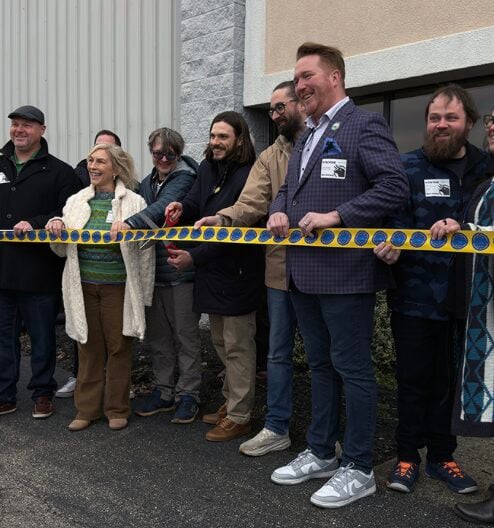Lexington actress and Maysville native Elizabeth Lawson will perform “Charlotte Dupuy: Suing for Freedom” on Sunday, May 15, at 2 p.m. at the Kentucky Artisan Center at Berea.
Lawson says she didn’t know much about her own family history growing up in Maysville. She knew she was descended from slaves and was frustrated that her ancestry was always a closed topic.
“Growing up, my family didn’t talk about our history as descendants of slaves here in Kentucky,” said Lawson. “I undertook Charlotte’s story to help us to learn our history and not be ashamed.”

Lawson began her research on Charlotte Dupuy while working at the Lexington Convention and Visitor’s Bureau. She has presented the story of Charlotte Dupuy for school groups and audiences throughout the state and is now a presenter for the Kentucky Humanities Council’s Chautauqua Program, bringing Kentucky’s history to life today.
The story of Charlotte Dupuy shares the unfortunately common struggles for an African American slave in the United States during the 1800’s. Born in 1787 in Cambridge, Maryland, Dupuy was separated from her family at the age of eight when she was sold as a slave to James Condon for $100. As the only slave owned by Condon, Charlotte did all household chores and raised the children.
In 1805, Charlotte at age 18 was brought to Lexington with Mr. Condon and met Aaron Dupuy, who was owned and enslaved by Henry and Lucretia Clay. After marrying Aaron Dupuy, Charlotte was sold to Henry Clay for $450 and was allowed to live with her husband.
When Henry Clay was appointed Secretary of State by President John Quincy Adams, the Clay and Dupuy families moved to Washington, D.C. where they stayed at the Decatur House from 1825-29. In February of 1829, Charlotte, with the aid of family friends, found a lawyer who filed papers on her behalf, suing the Clay family for her freedom and that of her children.
Her petition was denied and when Charlotte refused to return to Kentucky she was jailed in Virginia for five and a half years. Clay took it upon himself to see that Charlotte was well punished and that she and her children were separated. Once out of jail, she was sent by steamboat to New Orleans to take care of the children of Susan Clay, Henry Clay’s daughter. A few years later, Charlotte was sent back to Kentucky to take care of another set of Clay’s grandchildren living at Ashland in Lexington.
It was 1840 before Charlotte and her daughter Mary Anne were granted their freedom. Charlotte was 53.
“It’s important to know what it was like for black women back then and to respect the hardships and trials that they all endured as slaves,” Lawson said. “I am proud to be a part of this history and to be able to bring it to light through the life of this very brave woman, Charlotte Dupuy.”
A part of the Kentucky Humanities Council’s Chautauqua Series, this program is funded in part by both the Kentucky Humanities Council Inc. and the National Endowment for the Humanities.
The Kentucky Artisan Center at Berea is located just off Interstate 75 at Berea Exit 77. The center’s exhibits, shopping and travel information areas are open daily from 9 a.m. to 6 p.m., and the cafe is open from 9:30 a.m. to 4 p.m. Admission is free.
The Kentucky Artisan Center at Berea is an agency in the Tourism, Arts and Heritage Cabinet of the Commonwealth of Kentucky.
From Kentucky Tourism Cabinet Communications

















